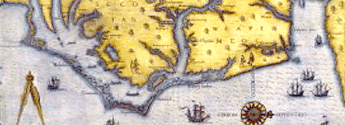Leader
Associate Professor, Department of History
University of North Carolina at Chapel Hill
National Humanities Center Fellow
About the Seminar
In the first two centuries after 1492, most colonies in the New World failed. This workshop explores why. We will read accounts of failures and successes and discuss what happened. How much did colonizers' expectations have to do with success or failure? Were the desires and power of local Indians the most important factors? How large a role did weather and climate play? Was luck the deciding factor? Should we be surprised that any succeeded?Presentation PDF
Download the presentation PDF.Seminar Recording
Technical Help
Visit our technical specifications page for information about the seminar forum and classroom.
![]() View a brief introduction to AIC online seminars.
View a brief introduction to AIC online seminars.
Assigned Readings
- From the American Memory Timeline from the Library of Congress: Colonial Settlement, 1600s - 1763.
- From the National Humanities Center's primary source collection American Beginnings: 1492-1690: Exploration.
- Accounts of the Spanish Attack on Fort Caroline, 1565
- Letter requesting food for Ajacan, 1570. (Letter of Luis de Quirós and Juan Baptista de Segura to Juan de Hinistrosa, From Ajacán, September 12, 1570.)
- Note and discussion questions
- Text (scroll down for English translation)
- Account of the rescue attempt at Roanoke, 1590
- Antoine Simon Le Page Du Pratz Describes French Conflict with the Natchez, 1729


